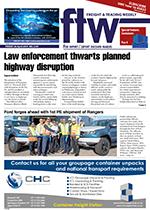25th Anniversary of the WTO’s Founding Agreements
Twenty-five years ago, on 15 April 1994, representatives from more than 120 countries met in Marrakesh, Morocco, to sign the “ greatest trade agreement in history ”, leading to the establishment of the World Trade Organization (WTO) by transforming the General Agreement on Tariffs and Trade (GATT) into the WTO. The WTO created a new global framework for liberalizing trade in goods and services, protecting intellectual property rights, and easing trade tensions through a new dispute resolution mechanism. The Marrakesh Agreement was the result of the 1986 to 1994 Uruguay Round negotiations, which produced more than 60 agreements and decisions totalling 550 pages, making it one of the largest treaties ever signed. The WTO’s creation on 1 January 1995 marked the biggest reform of international trade after World War II, realising the failed attempt in 1948 to create the International Trade Organization (ITO).
African Continental Free Trade Area Agreement
The African Continental Free Trade Area (AfCFTA) Agreement was enacted in 2018 and has subsequently been signed by 52 African countries. For the agreement to come into force, 22 of the countries must ratify the treaty. On 2 April 2019, Gambia became the 22nd country to ratify the AfCFTA Agreement with the AfCFTA now poised to come into force.
Private Sector Consultative Group
The World Customs Organization (WCO) Private Sector Consultative Group (PSCG) met on 15 and 16 April 2019 to discuss a variety of customs issues. The PSCG considered, among others, the work of the Working Group on E-Commerce, viewed a presentation on Free Trade Zones (FTZ), and discussed the impacts on business of non-negotiated tariff changes and retaliatory actions by countries. The PSCG noted the upcoming public conference on “ Revitalizing the Harmonized System ”, which is part of the WCO’s Harmonized System (HS) review. The PSCG also expressed their renewed commitment to the Revised Kyoto Convention (RKC) review process. Then, in preparation for the meeting with the SAFE Working Group, the PSCG discussed a number of ideas, namely: (i) Leveraging Authorised Economic Operator (AEO) without something as formal as a Mutual Recognition Arrangement (MRA); (ii) Whether it was time for an AEO convention, rather than continuing to sign bilateral MRAs; (iii) Whether
the WCO should validate Members’ AEO programmes; (iv) Establishing a WCO AEO/MRA measurement tool; (v) Creating an annual report of global benefits; and (vi) Applying the BASC “Sandbox” concept to MRAs to see how many benefits are available from one MRA to another. Finally, PSCG established a working group on the future of the SAFE Framework of Standards.
Duty Calls’ Watchlist
The Customs and Excise Bill, 2019, is due to come into operation on 1 June 2019. Comment on Sars’ “ Discussion Document on the Rewrite of the Excise Legislation ” is due by 31 May 2019.

